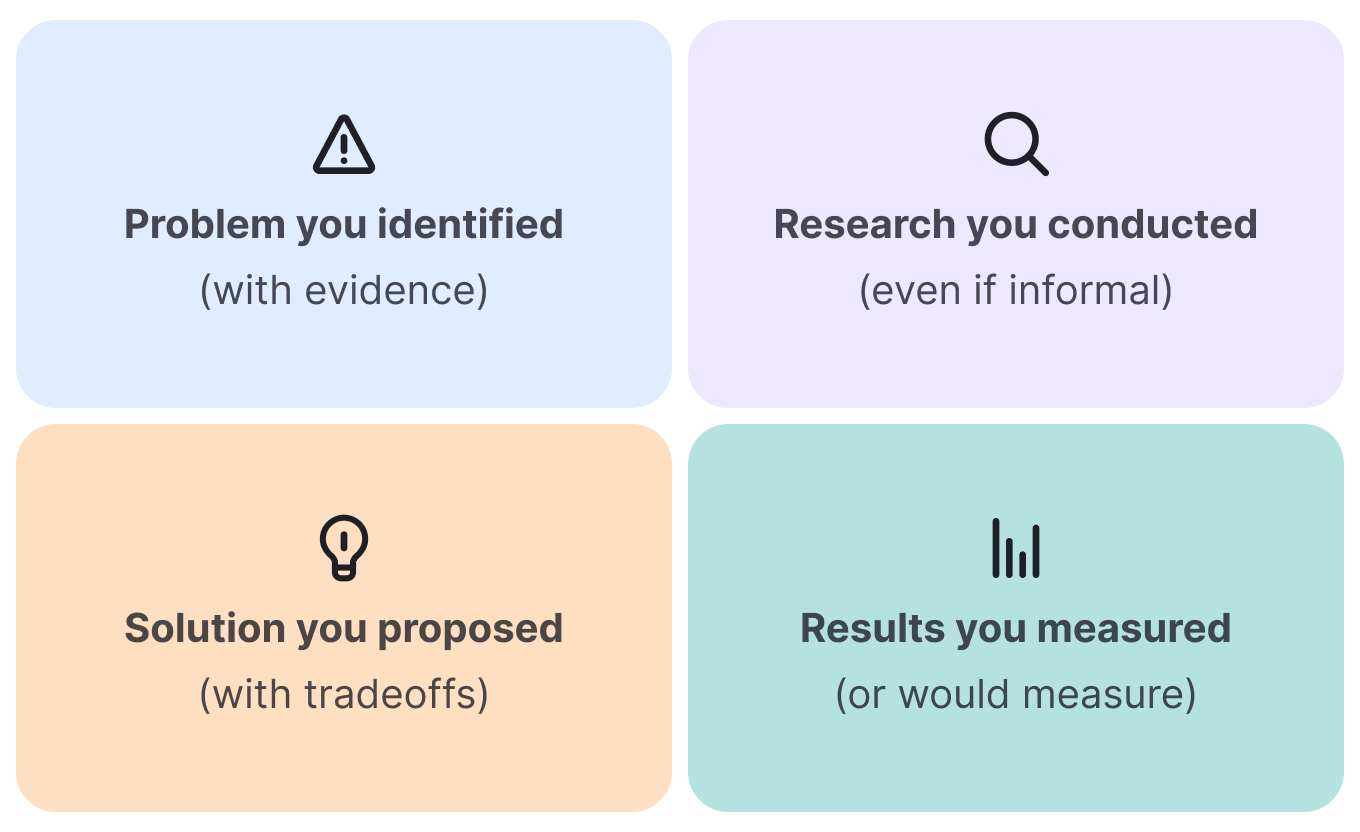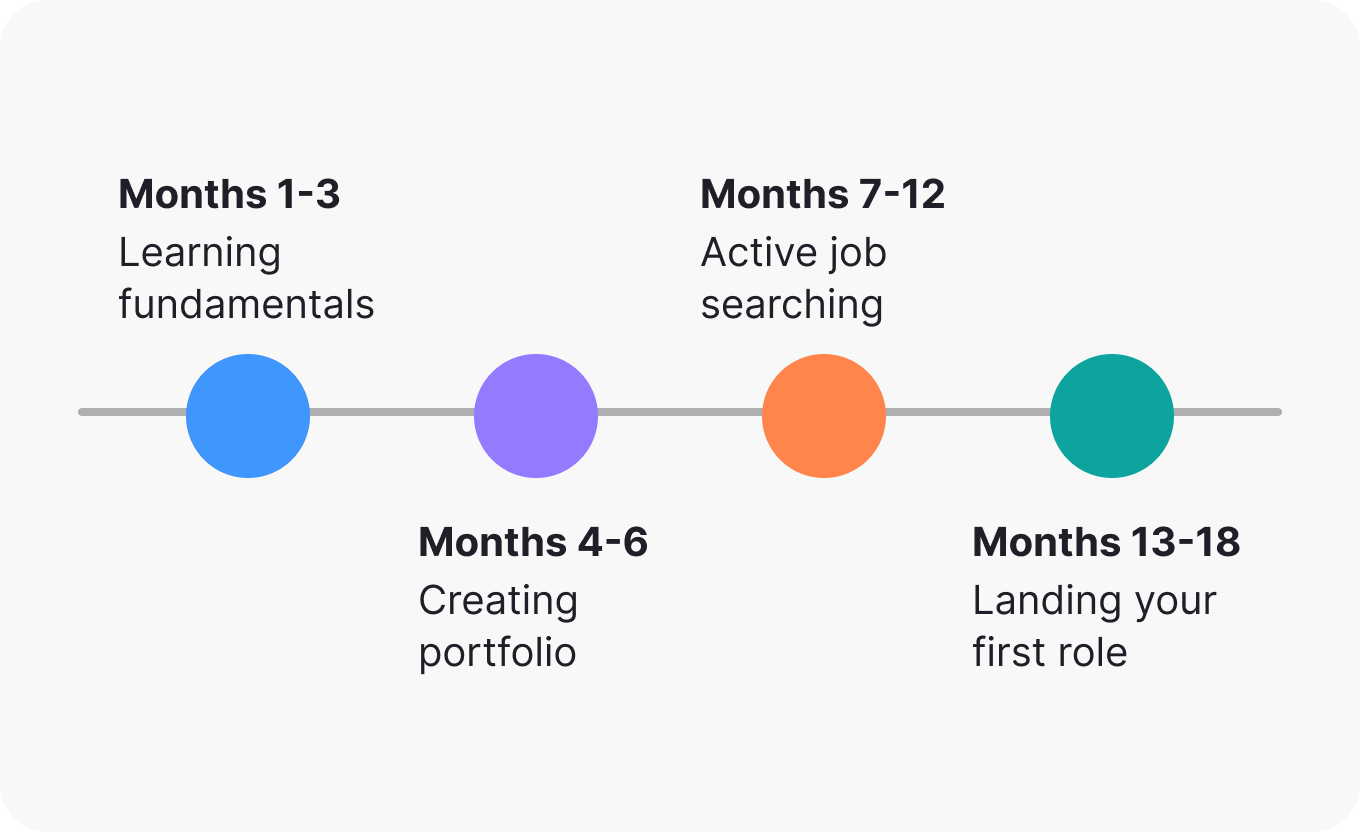Breaking into Product Management Through Paths Less Traveled
An honest guide to pivoting into PM when you don't have the "right" background
So you want to be a product manager, but your resume doesn't quite fit the bill. Maybe you've been teaching, running a restaurant, or working in healthcare. You've probably noticed most PM job postings want either an MBA, a CS degree, or 5+ years of PM experience, which you don't have.
Yes, breaking into PM from a non-traditional background is hard. Most companies say they value diverse perspectives but still filter resumes for keywords like "product management" and "agile." The system isn't built for career changers.
But people do it anyway. Not easily, not quickly, but they do it. This guide won't sugarcoat the challenge, but it will show you the paths that actually work.
First, let's unpack the fairy tales:
- Most companies won't care about your unique perspective. At least not at first. HR software will reject you before humans even see your resume. Hiring managers are risk-averse. They'd rather hire someone who's done the exact job before.
- You're competing against people with advantages you don't have. MBA grads, former consultants, internal transfers with sponsors. They speak the language, have the network, and know the game.
- Your domain expertise might not matter. Yes, you understand education/healthcare/retail deeply. But if they wanted domain expertise, they'd promote their own experts. They're hiring PMs for PM skills.
- The transition will likely cost you. Money, time, maybe even a step backward in seniority. Career changes aren't free.
Still here? Good. Because knowing the real challenge is the first step to overcoming it.
Why some companies (eventually) hire non-traditional PMs
Despite the barriers, some people do break through. Here's when it actually happens:
- When they can't find traditional candidates: Startups that can't compete with FAANG salaries. Companies in unglamorous industries. Remote-first teams fishing in bigger talent pools.
- When someone internal champions you: The hiring manager who also took a weird path. The founder who values hustle over pedigree. The team lead who's tired of cookie-cutter PMs.
- When you bring something they desperately need: Deep knowledge of a niche they're targeting. Relationships they want access to. Experience with their exact customer base.
- When you're already inside: Internal transfers remain the most common path for career changers. It's easier to take a risk on someone they know.
Building credibility from scratch
You need to look like a PM before anyone will hire you as one. Here's the unglamorous work that actually matters:
- Learn the vocabulary: You need to fluently discuss user stories, acceptance criteria, OKRs, agile methodologies, product-market fit, and metrics. Not deeply, but enough not to sound lost.
- Get certified (strategically): Certifications alone won't get you hired, but they show commitment. Skip anything that promises "become a PM in 30 days!" and opt for courses that let you gain solid foundational knowledge at your own pace. Not sure where to begin? Check out our course on Business and Technical Fundamentals and Cross-Functional Design & Product Teams designed for career changers who need to level up fast.
- Build something real: A side project proves you can ship. But make it substantial with:
- Real users (not just your friends or family)
- Multiple iterations based on feedback
- Actual metrics you can discuss
- Ideally, some revenue or meaningful impact
- Write thoughtfully: Start a blog or newsletter analyzing products. But go beyond "I think this button should be blue." Show off your strategic thinking in terms of business models, competitive dynamics, and user psychology.
Building your portfolio
Most PM portfolios are terrible, full of vague and hypothetical redesigns of Facebook. Add these sections instead to make your projects impactful:
Include:
- Real projects, even from non-PM roles
- Side projects with actual users
- Writing that shows product thinking
- Data visualization, if you can
Skip:
- Redesigns of major apps
- Theoretical frameworks without application
- Anything you can't discuss in depth
The job search reality
Here's how to not waste your time:
- Optimize for humans, not ATS: Yes, include keywords, but remember, if you get past the filters with tricks but can't back it up in person, you've wasted everyone's time.
- Target your applications: 10 thoughtful applications beat 100 generic ones. Research the company, find a connection, understand their challenges, and position yourself as the solution.
- Network sideways: Don't just network up to VPs of Product. Network across to designers, engineers, and marketers. They'll give you real intel and might advocate for you if you hit it off.
- Be honest about your level: Don't apply for Senior PM roles. Look for:
- Associate Product Manager
- Junior Product Manager
- Or roles titled differently that are essentially PM work
Interview prep like a pro
They'll test you on PM skills you haven't practiced. Prepare for:
- Product sense questions: "How would you improve X?" Have a framework. Talk about user segments, pain points, metrics, and tradeoffs. Practice out loud.
- Analytical questions: Basic data interpretation, market sizing, metrics definition. You don't need to be a data scientist, but you can't be afraid of numbers.
- Execution questions: How would you launch X? Show you understand dependencies, stakeholder management, and risk mitigation.
- Your background questions: Have a tight story about why PM, why now, why them. Address the elephant in the room (your non-traditional background) head-on.
The real timeline
Be realistic about the journey. A realistic timeline could look like this:
Some people get lucky and move faster. Some take 2+ years. Budget accordingly, both financially and emotionally.
What success actually looks like
Your first PM role probably won't be:
- At a big tech company
- High-paying compared to your experience level
- Perfectly aligned with your interests
- Full of immediate autonomy
It might be:
- At a startup you've never heard of
- Titled something weird like "Product Owner/Business Analyst"
- Heavy on execution, light on strategy
- A stepping stone, not a destination
And that's okay. Everyone's first PM role is about learning. The second one is where you can get picky.
TL;DR
Breaking into PM from a non-traditional background is possible but requires strategy, persistence, and often some luck.
The people who make it share a few traits:
- They're genuinely obsessed with products
- They're willing to take calculated steps backward
- They can handle repeated rejection
- They do the unglamorous work others skip
If that sounds like you, then yes, pursue it. But pursue it with eyes wide open, realistic timelines, and multiple backup plans.
Start building. Start learning. Start networking. But most importantly, start being honest with yourself about what this journey really requires.
You might also like

A Practical Guide to Coaching Designers - Part 2

Building Your First Product Roadmap: A Step-by-Step Guide

Communicating Across Teams
Popular Courses

Introduction to Product Management

Product Management for Designers









